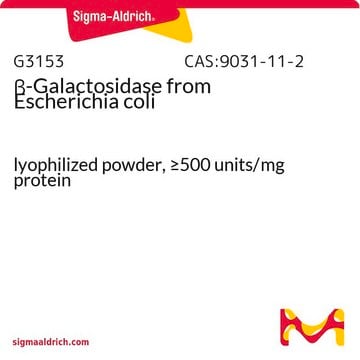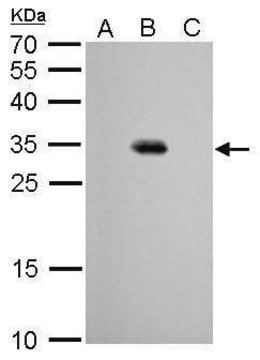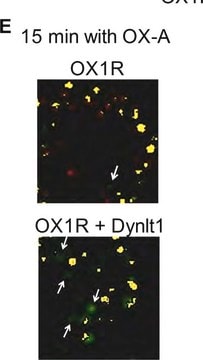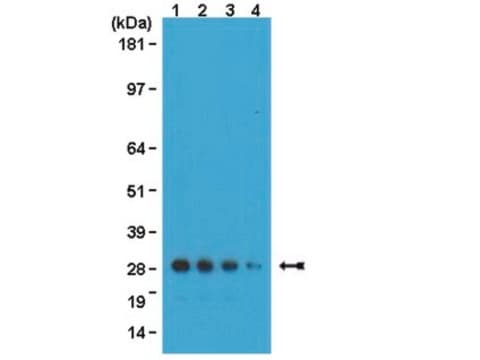G6539
Monoclonal Anti-Green Fluorescent Protein (GFP) antibody produced in mouse
clone GFP-20, ascites fluid
Synonyme(s) :
GFP Antibody - Monoclonal Anti-Green Fluorescent Protein (GFP) antibody produced in mouse, Gfp Antibody Sigma, Gfp Monoclonal Antibody
About This Item
Produits recommandés
Source biologique
mouse
Niveau de qualité
Conjugué
unconjugated
Forme d'anticorps
ascites fluid
Type de produit anticorps
primary antibodies
Clone
GFP-20, monoclonal
Poids mol.
antigen 27 kDa
Contient
15 mM sodium azide
Conditionnement
antibody small pack of 25 μL
Technique(s)
dot blot: suitable
indirect ELISA: suitable
western blot: 1:2,000 using purified recombinant GFP preparation
Isotype
IgG1
Conditions d'expédition
dry ice
Température de stockage
−20°C
Modification post-traductionnelle de la cible
unmodified
Description générale
Immunogène
Application
Clause de non-responsabilité
Vous ne trouvez pas le bon produit ?
Essayez notre Outil de sélection de produits.
En option
Produit(s) apparenté(s)
Code de la classe de stockage
12 - Non Combustible Liquids
Classe de danger pour l'eau (WGK)
WGK 3
Point d'éclair (°F)
Not applicable
Point d'éclair (°C)
Not applicable
Certificats d'analyse (COA)
Recherchez un Certificats d'analyse (COA) en saisissant le numéro de lot du produit. Les numéros de lot figurent sur l'étiquette du produit après les mots "Lot" ou "Batch".
Déjà en possession de ce produit ?
Retrouvez la documentation relative aux produits que vous avez récemment achetés dans la Bibliothèque de documents.
Les clients ont également consulté
Notre équipe de scientifiques dispose d'une expérience dans tous les secteurs de la recherche, notamment en sciences de la vie, science des matériaux, synthèse chimique, chromatographie, analyse et dans de nombreux autres domaines..
Contacter notre Service technique














